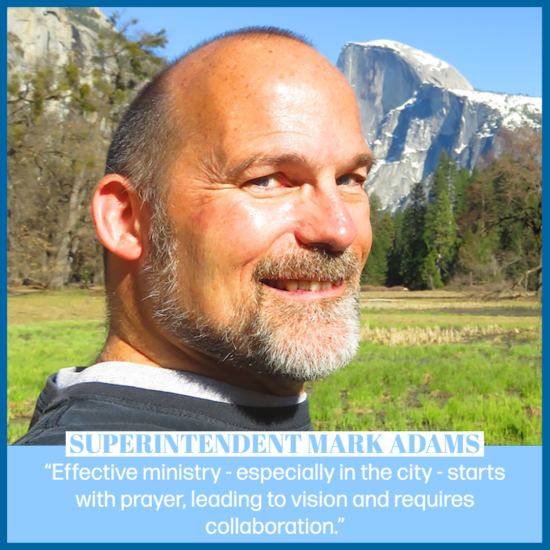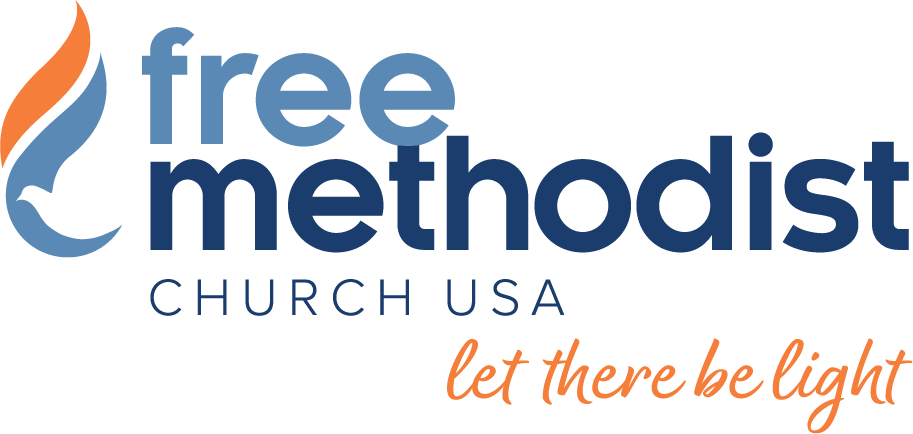 Governor George Ryan handed me the Illinois Excellence Award for Hillside Free Methodist Church’s Refugee Ministry. It was a proud moment for the church. Serving refugees in Chicago had never been about awards (though the church received many) but simply about obedience to a vision and answer to prayer. Ministering to, sponsoring, relocating and providing spiritual and relational support for hundreds of refugees on Chicago’s North Side flowed out of an answer to prayer and has been accomplished through collaborative efforts with many organizations throughout Chicagoland.
Governor George Ryan handed me the Illinois Excellence Award for Hillside Free Methodist Church’s Refugee Ministry. It was a proud moment for the church. Serving refugees in Chicago had never been about awards (though the church received many) but simply about obedience to a vision and answer to prayer. Ministering to, sponsoring, relocating and providing spiritual and relational support for hundreds of refugees on Chicago’s North Side flowed out of an answer to prayer and has been accomplished through collaborative efforts with many organizations throughout Chicagoland.
Effective ministry — especially in the city — starts with prayer, leading to vision, and requires collaboration.
The first collaboration is always between the Holy Spirit and the community of faith. Christ’s Spirit filled our church with heartbreak over persecuted Christians around the world, and a desire to do something to help. Our hearts were particularly moved over the people suffering in Sudan. After a significant season of prayer, and of raising support for various aid agencies assisting persecuted Christians, we discovered that Sudanese refugees were arriving in Chicago. We could not pray to assist the Sudanese and then not take action when God brought them to our doorstep.
World Relief became our first community partner. This amazing global outreach and aid branch of the National Association of Evangelicals provided the church with its first taste of training, awareness and provision of support for refugees. In partnership with World Relief, we learned how to befriend, establish and empower new arrivals to the USA who were shell-shocked, culturally overwhelmed, in deep need and looking for the hope of a better future.
The church began to sponsor more refugees, setting up apartments in Chicago for people not only from the Sudan, but Kosovo, Bosnia, Eretria, Liberia, Rwanda, Burundi, Ivory Coast, Syria, Iraq and many other places ravaged by war. Multiple needs were represented. Of course, the basic needs for food and shelter meant church members began to forge healthy relationships with the Department of Public Aid, Senior Services, the Department of Housing and Urban Development, and the regional Interfaith Housing Center.
After salvation in Jesus Christ, perhaps the next most important thing in life is being able to secure meaningful work. Doing so in a strange land, not speaking the local language, and often not educated or certified for work in the profession of choice creates numerous barriers. Partnering with other churches that provide job training, local businesses to create open door opportunities, community coaching programs, etc., proved critical as the church sought to aid these new hopeful employees.
Many refugees arrive having been professionals in their homeland but not able to work similar professions in the USA. Many more have few educational accomplishments equipping them to work immediately in jobs paying more than minimum wage. Education is critical. The church learned to partner with local schools. We discovered Chicago community colleges and local high schools had affordable, sometimes free courses and certification programs that assist refugees navigate sometimes daunting educational and certification goals needed to open doors to the “American Dream.”
Networking in community to identify physicians and special care agencies, i.e. Lighthouse for the Blind, that have a heart for refugees added to community collaboration and have literally saved refugee lives.
As the church coordinated aid and support for refugees, all of these community support tools helped the church understand the real need to see ministry as cooperation across a broad spectrum of agencies, institutions and people. Church members proactively connected and engaged with meeting real needs as they arose, tutoring, transporting, befriending, opening their homes, and navigating legal documents and tax issues. But church volunteers alone are not enough. The needs of hundreds of refugees were beyond the capacity of the single congregation to meet on its own. Discovering local tutors, partnering with the University of Chicago student legal bureau and identifying partners through other churches made the ministry to refugees holistic, expansive and successful.
Community collaboration takes effort. Phone calls, face-to-face meetings, give-and-take, and misunderstandings abound. Far, far more difficult is accomplishing a holistic ministry in an urban center without it. What started as a need felt through prayer, and simple opportunities to do the next right thing for a devastated group of people, gave an already multicultural church new connections within the community that were necessary to accomplish our vision. What was unexpected were the benefits to the church as a result of community cooperation.
The church became known throughout Chicago’s North Side as the go-to resource for learning to work with refugees and a global population. World Relief referred churches interested in starting such ministries to Hillside as an example. As a result of ministry to refugees, the church rose in credibility in its immediate community, and attendance rose both from those being served and those wanting to connect with a ministry that was making a real difference in people’s lives. The blessing of forming a more multicultural congregation (30% African heritage, 30% Asian heritage, 30% European heritage) that spoke up to 16 languages on any given Sunday created opportunities to bear witness to God’s global redemption. Multiple recognitions, the Mayor’s Martin Luther King Unity Banner, World Relief’s Church of the Year, the Governor’s Excellence Award and others did bring opportunity for the Free Methodist Church to have citywide influence and provide a tangible voice for justice, mercy and humility in the city.
Effective urban ministry starts with prayer, leading to vision, requiring community partnerships to be truly fruitful.
About the Author
Mark Adams superintends the Sierra Pacific Conference (Network of Undeniable Blessing), superintended the North Central Conference, and church planted and pastored at several Chicagoland locations. Mark has also worked as a mental health counselor, child welfare worker, social work supervisor and was on faculty at Garret Evangelical Theological Seminary. He is married to Kerrie, and they have four sons and eight grandchildren.
